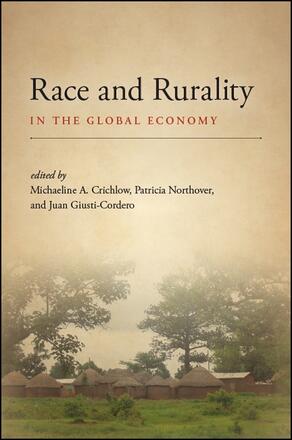
Race and Rurality in the Global Economy
Alternative formats available from:
Open access edition available from:
Essays that examine globalization's effects with an emphasis on the interplay of race and rurality as it occurs across diverse geographies and peoples.
Description
Issues of migration, environment, rurality, and the visceral "politics of place" and "space" have occupied center stage in recent electoral political struggles in the United States and Europe, suffused by an antiglobalization discourse that has come to resonate with Euro-American peoples. Race and Rurality in the Global Economy suggests that this present fractious global politics begs for closer attention to be paid to the deep-rooted conditions and outcomes of globalization and development. From multiple viewpoints the contributors to this volume propose ways of understanding the ongoing processes of globalization that configure peoples and places via a politics of rurality in a capitalist world economy, and through an optics of raciality that intersects with class, gender, identity, land, and environment. In tackling the dynamics of space and place, their essays address matters such as the heightened risks and multiple states of insecurity in the global economy; the new logics of expulsion and primitive accumulation dynamics shaping a new "savage sorting"; patterns of resistance and transformation in the face of globalization's political and environmental changes; the steady decline in the livelihoods of people of color globally and their deepened vulnerabilities; and the complex reconstitution of systemic and lived racialization within these processes. This book is an invitation to ask whether our dystopia in present politics can be disentangled from the deepening sense of "white fragility" in the context of the historical power of globalization's raced effects.
This book is freely available in an open access edition thanks to Knowledge Unlatched—an initiative that provides libraries and institutions with a centralized platform to support OA collections and from leading publishing houses and OA initiatives. Learn more at the Knowledge Unlatched website at: https://www.knowledgeunlatched.org/, and access the book online at the SUNY Open Access Repository at http://hdl.handle.net/20.500.12648/7136
.
Michaeline A. Crichlow is Professor of African and African American Studies and Sociology at Duke University. Patricia Northover is Senior Research Fellow at the University of the West Indies, Sir Arthur Lewis Institute of Social and Economic Studies, Mona. Together, they are the authors of Globalization and the Post-Creole Imagination: Notes on Fleeing the Plantation. Juan Giusti-Cordero is Professor of History and Director of the Caribbean Social Science Archive at the University of Puerto Rico, Rio Piedras. He is the coeditor (with Ulbe Bosma and G. Roger Knight) of Sugarlandia Revisited: Sugar and Colonialism in Asia and the Americas, 1800–1940.